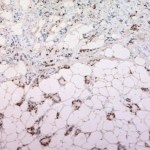cam
I write quite a bit about placebo effects. Of course, part of the reason is that placebo effects are just plain interesting from a scientific perspective. After all, if one can relieve symptoms with inert sugar pills or other ineffective interventions because of the power of expectation, that’s something we should want to understand. Also, given the mission of this blog, another major reason is that placebo effects are inextricably bound to the question of whether the alternative medicine modalities that are being “integrated” into medicine through the brand of integrative medicine actually…
It’s been a long time since I’ve encountered Glenn Sabin. You might remember him, though. He runs a consulting firm, FON Therapeutics, which is dedicated to the promotion of “integrative” health, or, as I like to put it, the “integration of pseudoscience and quackery with science-based medicine. What I remember most about Sabin is how he once proclaimed that “integrative medicine” was a brand, not a specialty. Unfortunately, he was correct in his assessment. Basically, he declared, “CAM [complementary and alternative medicine] is dead. The evolution of evidence-based, personalized integrative…
John Weeks has long been an activist for alternative medicine—excuse me, “complementary and alternative medicine” (CAM) or, as it’s more commonly referred to these days, “integrative medicine.” Despite his having zero background in scientific research or the design and execution of experiments and clinical trials, for some bizarre reason in May he was appointed editor of the Journal of Alternative and Complementary Medicine (JACM). It didn’t take him long at all to use his new post to launch a nasty broadside against CAM critics in general (such as yours truly) and those who criticized a…
A little over a month ago, I wrote about how proponents of "complementary and alternative medicine" (CAM), now more frequently called "integrative medicine," go to great lengths to claim nonpharmacological treatments for, well, just about anything as somehow being CAM or "integrative." The example I used was a systematic review article published by several of the bigwigs at that government font of pseudoscience, the National Center for Complementary and Integrative Health (NCCIH) about CAM approaches for the management of chronic pain. You can read my whole post for yourself if you want the…
There’s a class of studies that I sometimes refer to as “Well, duh!” studies because their conclusions are so mind-numbingly obvious that one wonders why anyone did the study in the first place. Sometimes that name is meant sarcastically, as in, “Why did these investigators waste the time, effort, and resources to do this study? No, really, why?” Sometimes, though, “Well, duh!” studies are useful and justified because they confirm a conclusion that everyone strongly suspected but for which there wasn’t direct evidence. So it was with a “Well, duh!” study that was published in the October…
One of the most pernicious changes in medicine that’s occurred over the last 25 years or so is the infiltration of what I like to refer to as “quackademic medicine.” It’s a term that was, as far as I know, coined by Dr. Robert W. Donnell in 2009 to describe the infiltration of pseudoscience and quackery into medical schools and academic medical centers under the mantle of “complementary and alternative medicine” (CAM), now more commonly referred to as “integrative medicine. However, over the years, I’ve embraced the term to describe the “integration” of quackery and pseudoscience into…
So-called “alternative” medicine is made up of a hodge-podge of health care practices and treatments based on beliefs that are unscientific, pre-scientific, and pseudoscientific. These modalities include practices as diverse as homeopathy, traditional Chinese medicine, reflexology, reiki and other forms of “energy medicine” based on vitalism, chiropractic, and naturopathy, and that’s a short list of the quackery that falls under the rubric of the term “alternative medicine.” Unfortunately, this unscientific, pre-scientific, and pseudoscientific hodge-podge of treatments rooted in nonsense are…
Et tu, Scientific American?
A few of you seem to know what will catch my attention and push my buttons, because over the past couple of days a few of you sent me an article published in Scientific America by an internal medicine resident named Allison Bond entitled Sometimes It's Okay to Give Patients a Treatment with No Proved Medical Benefits. Yes, a title like that is akin to waving the proverbial cape in front of a bull. Of course, I doubt that Bond herself came up with that title; editors usually come up with such titles. Still, the title is a fairly accurate summation of what is being…
[Note: My flight home from London was delayed until quite late; so unfortunately another "rerun" is in order. This one's from three years ago, and I actually consider it one of my "classics." It was also originally published at my not-so-super-secret other blog and represents the first time I tried to put together my concept of a "central dogma" of alternative medicine into a semi-coherent form. Ultimately, this lead to my talk The Central Dogma of Alternative Medicine, given at Skepticon last year. If you've been reading less than three years, it's new to you. If you haven't, you really…
When it comes to the use of what is sometimes called "complementary and alternative medicine" (CAM) or, increasingly, "integrative medicine," there is a certain narrative. It's a narrative promoted by CAM proponents that does its best to convince the public that there is nothing unusual, untoward, or odd about CAM use, even though much of CAM consists of treatments that are based on prescientific concepts of human physiology and pathology, such as traditional Chinese medicine or homeopathy. In other words, it's a narrative designed to "normalize" CAM usage (and therefore CAM practice), making…
Quite to my surprise, apparently I've become fairly well known as a critic of so-called "integrative medicine," that which used to be called "complementary and alternative medicine" (CAM) but whose name was changed because its practitioners didn't want to be "complementary" to anything. Rather they wanted their woo to be co-equal with science-based medicine (SBM). Before that, what is now "integrative medicine" after having been CAM was known as "alternative medicine." (The wag in me can't resist further pointing out that before that it was mostly known as quackery.) As I like to say, the…
In honor of the Discovery Channel's "Shark Week", check out these shark cams.
National Aquarium Reef Shark Cam:
Broadcast live streaming video on Ustream
SHARK FIN CAM: Video taken from a camera strapped to the dorsal fin of a shark:
Broadcast live streaming video on Ustream
If you have not yet tuned in to Discovery Channel, there are still a few days left of shark week!
If there's one thing that I write that I don't feel I repeat too much (although some might disagree), it's that, unlike other centers and institutes at the National Institutes of Health (NIH), there is not, and never was, a compelling scientific justification for the National Center for Complementary and Alternative Medicine (NCCAM) to exist as a separate entity. There is nothing that NCCAM does that couldn't be done just as well in other parts of the NIH, with the exception of research into modalities with such low prior plausibility and such fantastical proposed mechanisms of working that…
Practitioners of "complementary and alternative medicine" (CAM) have a love-hate relationship with randomized clinical trials (RCTs). Actually, it's mostly hate, but they do crave the validation that only randomized clinical trials can provide within the paradigm of evidence-based medicine (EBM). Yes, I intentionally said EBM, rather than science-based medicine (SBM), because, as I've described so many times before, the two are not the same thing. EBM fetishizes clinical trials, a fixation that I sometimes call "methodolatry," defined by a blog bud of mine from long ago as the "profane…
One of the fun things about blogging is that I can often follow how various issues develop and, more importantly, insert my opinion into the issue. As bizarre as it seems to me even almost nine years after starting this blog that anyone keeps reading what I have to lay down (and it still does seem bizarre that anyone cares much what I have to say every day, but several thousand of you apparently do), that's what I continue to be here for. Last month, I wrote about an editorial by the director of the National Center for Complementary and Alternative Medicine (NCCAM) in which she called for a "…
Another year, another Breast Cancer Awareness Month.
While most people who have either been touched by breast cancer or who have a professional interest in it, the significance of Breast Cancer Awareness Month is that it is a time, well, to increase awareness and to promote breast cancer research. There is another side to Breast Cancer Awareness Month, however, and it's not just the question of its excessive commercialization, which concerns some people. Rather, inevitably, just as the vaccine-autism quacks have come out of the woodwork for Autism Awareness Month each April, each October…
By most metrics, those of us at Terra Sig World Headquarters are liberals. Nevertheless, we often enjoy reading conservative writer, attorney, and American Enterprise Institute fellow, David Frum. Perhaps I have a soft spot for him because he's Canadian and he also writes for my favorite print newsmagazine, The Week.
Well, Frum chose this week to write, "Herbal remedies need real scrutiny," at his FrumForum and the post was subsequently published as a special commentary at CNN.com. The latter version has accumulated about ten times as many comments. The thesis of his essay is that the…
I just had a chance to check in on a triad of posts by Prof Janet Stemwedel at Adventures in Ethics and Science (1, 2, 3) on the ethical issues of the conduct of studies, particularly clinical trials, supported by the US NIH's National Center for Complementary and Alternative Medicine (NCCAM).
For background, NCCAM was originally established for political, not scientific reasons, as the NIH Office of Alternative Medicine in October 1991. It received a token budget of $2 million at the time. They still only get $120-ish million; modest by NIH standards as compared, say, with the 2007 NCI…
This sexy mussel is burning up the web right now. Totally free and posing just for you, watch in real-time as this flirty bivalve does its thing.
Riveting live feed courtesy of Flex Mussels restaurant on Prince Edward Island.







